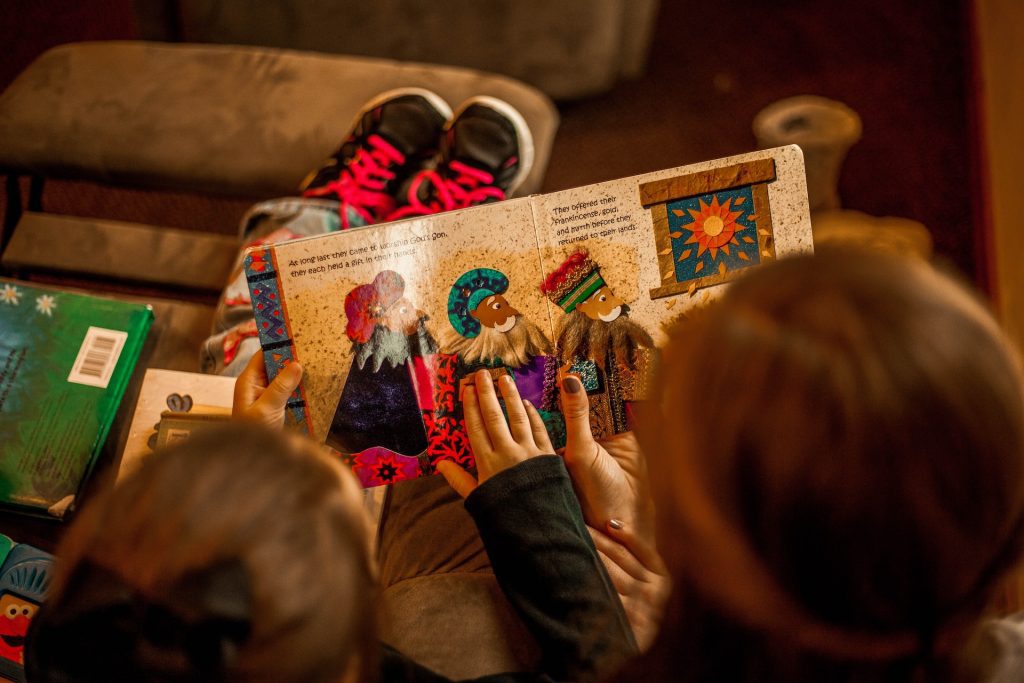Classic books serve as invaluable companions in a child's journey of growth and imagination. Their enduring significance lies in nurturing young minds by fostering creativity, empathy, and critical thinking. These timeless tales not only entertain but also impart timeless wisdom and life lessons.
Through beloved characters and captivating narratives, classic children's books spark curiosity, encourage a love for reading, and lay the foundation for strong literacy skills. As pillars of literary heritage, these stories transcend generations, providing a bridge between past and present, offering insights into diverse cultures and fostering a deeper understanding of the world.
Benefits of Reading Classic Books for Kids

Immersing children in classic books yields a plethora of benefits that extend far beyond the pages. The cognitive development and imagination nurtured by these stories are unparalleled. As young minds navigate fantastical realms and complex narratives, their cognitive faculties expand, enhancing problem-solving abilities and creativity.
Moreover, the richness of language in classic literature contributes significantly to vocabulary enhancement and language skills. Exposure to varied writing styles and sophisticated vocabulary within these books cultivates eloquence and articulation in young readers.
One of the distinguishing hallmarks of classic books is their ability to impart invaluable moral and life lessons. Through the trials and triumphs of beloved characters, children glean essential values like courage, empathy, resilience, and the importance of integrity. These tales serve as moral compasses, guiding children through life's complexities.
Beyond individual character development, classic books offer a window into different cultures and historical periods. They enable children to traverse diverse landscapes, understand varying traditions, and appreciate historical contexts. Whether it's exploring ancient civilizations or understanding societal norms from different eras, these stories foster a deeper cultural and historical understanding.
In essence, the benefits of reading classic books for kids extend far beyond literary appreciation. They serve as catalysts for holistic development, nurturing not only a love for reading but also shaping individuals with enriched cognitive abilities, linguistic adeptness, a strong moral compass, and a broader worldview.
As children engage with these timeless tales, they embark on transformative journeys that mold their character, broaden their horizons, and lay the foundation for a lifelong love of learning.
Timeless Classic Books for Preschoolers

Introducing preschoolers to the enchanting world of classic literature is a gateway to fostering their love for storytelling and reading. Several iconic books have stood the test of time, captivating the hearts of generations of young readers. Among these cherished classics are perennial favorites like Margaret Wise Brown's ‘Goodnight Moon' and Eric Carle's ‘The Very Hungry Caterpillar.'
‘Goodnight Moon,' a soothing bedtime tale, enchants with its rhythmic prose and tranquil illustrations. This timeless book not only lulls children to sleep but also instills a sense of comfort and routine, making it a beloved bedtime ritual for many families. Its gentle narrative and familiar imagery create a calming atmosphere for young ones, aiding in bedtime routines and fostering a love for books.
On the other hand, ‘The Very Hungry Caterpillar' takes young readers on a colorful journey through the life cycle of a caterpillar. Eric Carle's vibrant illustrations and simple yet engaging storyline captivate preschoolers' imaginations. Beyond the tale of transformation, it subtly teaches counting, days of the week, and healthy eating habits, making learning an enjoyable adventure.
Both books serve as invaluable tools for preschoolers' development. ‘Goodnight Moon' promotes relaxation and bedtime rituals, while ‘The Very Hungry Caterpillar' blends entertainment with educational elements, fostering curiosity and foundational learning.
These iconic books hold a special place in children's literary landscape, transcending generations with their timeless appeal. Their enduring relevance lies in their ability to engage young minds, spark imagination, and lay the groundwork for a lifelong love of reading.
By introducing preschoolers to these classics, parents and educators offer them not just stories, but treasures that will shape their early experiences, cultivate a love for storytelling, and build the foundation for a lifelong literary journey.
Essential Classic Books for Elementary Schoolers

Transitioning into elementary school opens doors to a broader spectrum of classic literature that engages and challenges young readers. Time-honored titles such as ‘Charlotte's Web' by E.B. White and ‘Alice's Adventures in Wonderland' by Lewis Carroll stand tall among essential reads for this age group.
‘Charlotte's Web' weaves a heartwarming tale of friendship, bravery, and the circle of life. Through the unlikely bond between a pig named Wilbur and a clever spider named Charlotte, children discover themes of empathy, selflessness, and the beauty of individuality. The book not only introduces the concept of mortality in a gentle manner but also prompts discussions on loyalty and the power of kindness.
Meanwhile, ‘Alice's Adventures in Wonderland' invites young readers into a whimsical world filled with absurdity and imagination. Amidst its surreal settings and quirky characters, the book navigates themes of growing up, identity, and the pursuit of logic in an illogical world. It encourages children to embrace curiosity, challenge conventions, and appreciate the marvels of imagination.
These classic books for elementary schoolers serve as stepping stones for exploring complex themes and moral nuances. ‘Charlotte's Web' instills profound life lessons about compassion and loss, while ‘Alice's Adventures in Wonderland' celebrates creativity and divergent thinking. Both books captivate young minds with vibrant storytelling while subtly imparting values and lessons crucial for their emotional and intellectual growth.
Introducing these classics to elementary schoolers not only expands their literary horizons but also stimulates their critical thinking and empathy. As children delve into these timeless narratives, they embark on journeys that not only entertain but also mold their understanding of the world, nurturing them into thoughtful and empathetic individuals ready to embrace life's complexities.
Immersive Adventures in Classic Young Adult Literature

Classic young adult literature holds an everlasting allure for pre-teens and teenagers, captivating their imaginations while addressing themes relevant to their transitional phases. Among these, ‘The Chronicles of Narnia' by C.S. Lewis and the ‘Harry Potter' series by J.K. Rowling stand as quintessential choices that have left an indelible mark on young adult readers.
‘The Chronicles of Narnia' presents a fantastical realm intertwined with allegorical elements, inviting readers into a world teeming with magic, adventure, and moral dilemmas. C.S. Lewis masterfully crafts a narrative that explores courage, sacrifice, and the eternal struggle between good and evil. Its enduring appeal lies in its ability to enthrall readers while subtly imparting moral lessons and provoking deeper contemplation on ethical choices.
The ‘Harry Potter' series, a modern phenomenon, follows the journey of a young wizard through a magical world rife with friendship, bravery, and the power of love. J.K. Rowling's intricate storytelling not only captivates with spells and enchantments but also delves into profound themes like resilience, discrimination, and the complexity of human nature. Its universal themes resonate across generations, drawing young readers into a world of wonder and self-discovery.
These classic young adult novels resonate deeply with readers due to their immersive world-building, relatable characters, and exploration of universal themes. Their enduring impact on young adult readers lies in their ability to provide a sense of escapism while addressing real-life challenges, thereby fostering empathy, resilience, and critical thinking.
By delving into these classic series, pre-teens and teenagers embark on transformative journeys that transcend mere entertainment. These books serve as companions, guiding young readers through the complexities of adolescence, instilling valuable life lessons, and nurturing a deeper understanding of themselves and the world around them.
Conclusion
Classic books wield a profound influence in shaping the tapestry of young minds, offering an array of invaluable gifts that transcend time. Their significance lies in their ability to ignite the flames of imagination, nurture empathy, and instill enduring values.
These timeless tales serve as more than just stories—they are repositories of wisdom, sparking curiosity and laying the foundation for a lifelong love of reading. Through the vivid landscapes of classic literature, children embark on journeys that foster cognitive development, language skills, and moral understanding. Characters like Harry Potter, Charlotte the spider, or Alice in Wonderland become companions, guiding young readers through the complexities of life.
By exploring classic books, children not only embrace literary treasures but also gain insights into diverse cultures and historical periods, fostering a broader worldview. The lessons imbibed from these stories extend beyond the pages, shaping their character, nurturing empathy, and honing critical thinking.
As stewards of young minds, parents, educators, and caregivers hold the key to unlocking this treasure trove. Encouraging children to delve into these timeless stories is to provide them with a legacy—gifts of imagination, resilience, and moral compass that endure through generations.
In closing, the significance of classic books in shaping young minds cannot be overstated. They serve as beacons of inspiration, guiding children through the labyrinth of life's lessons and enchanting them with tales that transcend generations. Let us, therefore, open the gates to these literary wonders, inviting children to explore, discover, and immerse themselves in the enchanting realms of classic literature for the enrichment of their minds and the nurturing of their souls.


